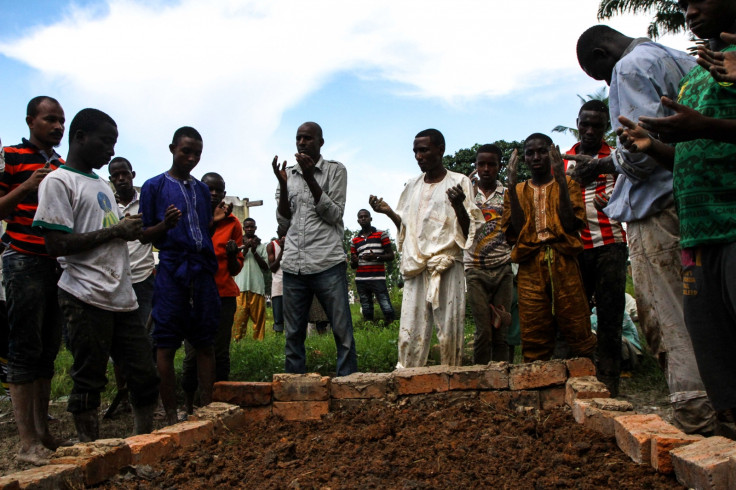Central African Republic: UN peacekeepers should use force to stop civilian deaths says HRW
Human Rights Watch slams UN's failure to protect civilians in Bria.

United Nations (UN) peacekeepers should anticipate serious fighting between armed groups in the Central African Republic (CAR) and use force to protect civilians, a rights group has urged, following reports that at least 14 civilians had been killed and 76 wounded in the latest spate of violence.
There have been growing fears that intense violence could erupt following the withdrawal of troops by France's Sangaris military operation in the CAR at the end of October. The mission started three years ago to stop bloodletting when Muslim Seleka rebels toppled the then-president François Bozize's government in March 2013, sparking a sectarian civil war. The mainly Muslim Seleka rebel alliance fractured in 2014.
During clashes between Seleka warring groups, at least 14 civilians died and 76 were wounded in late November this year in some of the worse violence since the split. Armed groups are said to have deliberately targeted five of the civilians killed during the main clashes in the central town of Bria, according to Human Rights Watch. Three other civilians are missing and presumed dead.
As part of its MINUSCA mission, the UN has 12,870 peacekeepers deployed across CAR, including 246 who were in Bria at the time of the fighting, but they were unable to protect civilians. The UN sent additional peacekeepers to the town after the clashes. National security forces, such as police and gendarmes, were not capable of stopping the fighting and sought protection from the UN.
"The rising violence in the central regions between Seleka factions is having a predictably grave impact on civilians," said Lewis Mudge, Africa researcher at HRW. These civilians deaths highlight the need for UN peacekeepers deployed in the CAR to "use force to protect these vulnerable people, as their mandate allows", Mudge added.
In the diamond-rich region, the Popular Front for the Renassaince in the Central African Republic (Front Populaire pour la Renaissance de la Centrafrique, FPRC) opposes the Union for Peace in the Central African Republic (l'Union pour la Paix en Centrafrique, UPC), which largely consists of ethnic Peul. Both factions collect "road taxes", especially in mining areas and on migration routes for Peul herders, according to the campaign group.
In the key mining hub of Bria, some 485 Muslim ethnic Peul civilians, many of them women and children, fear revenge attacks because Peul comprise the majority of the UPC faction. These civilians need the immediate protection of the nearly 250 peacekeepers already in town, Mudge said.
The November fighting displaced up to 10,000 people from Bria - just under a quarter of the 43,000-strong population. Rights groups urged donor countries to support the country's Special Criminal Court (SCC) to end impunity for crimes under international law, as representatives of the European Union and CAR's government hosted the Brussels Conference last month (November) to discuss funding priorities for the country.
© Copyright IBTimes 2025. All rights reserved.






















